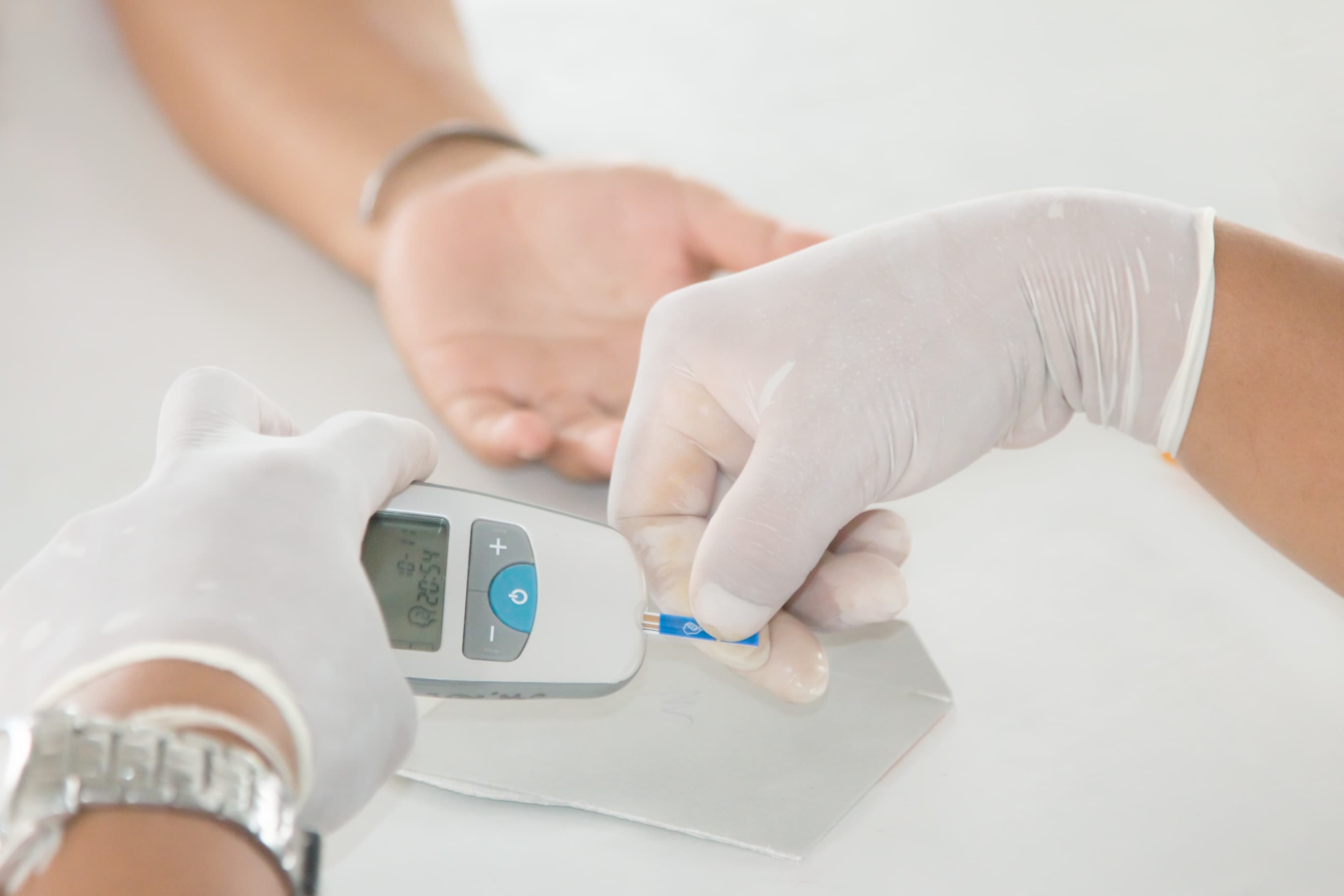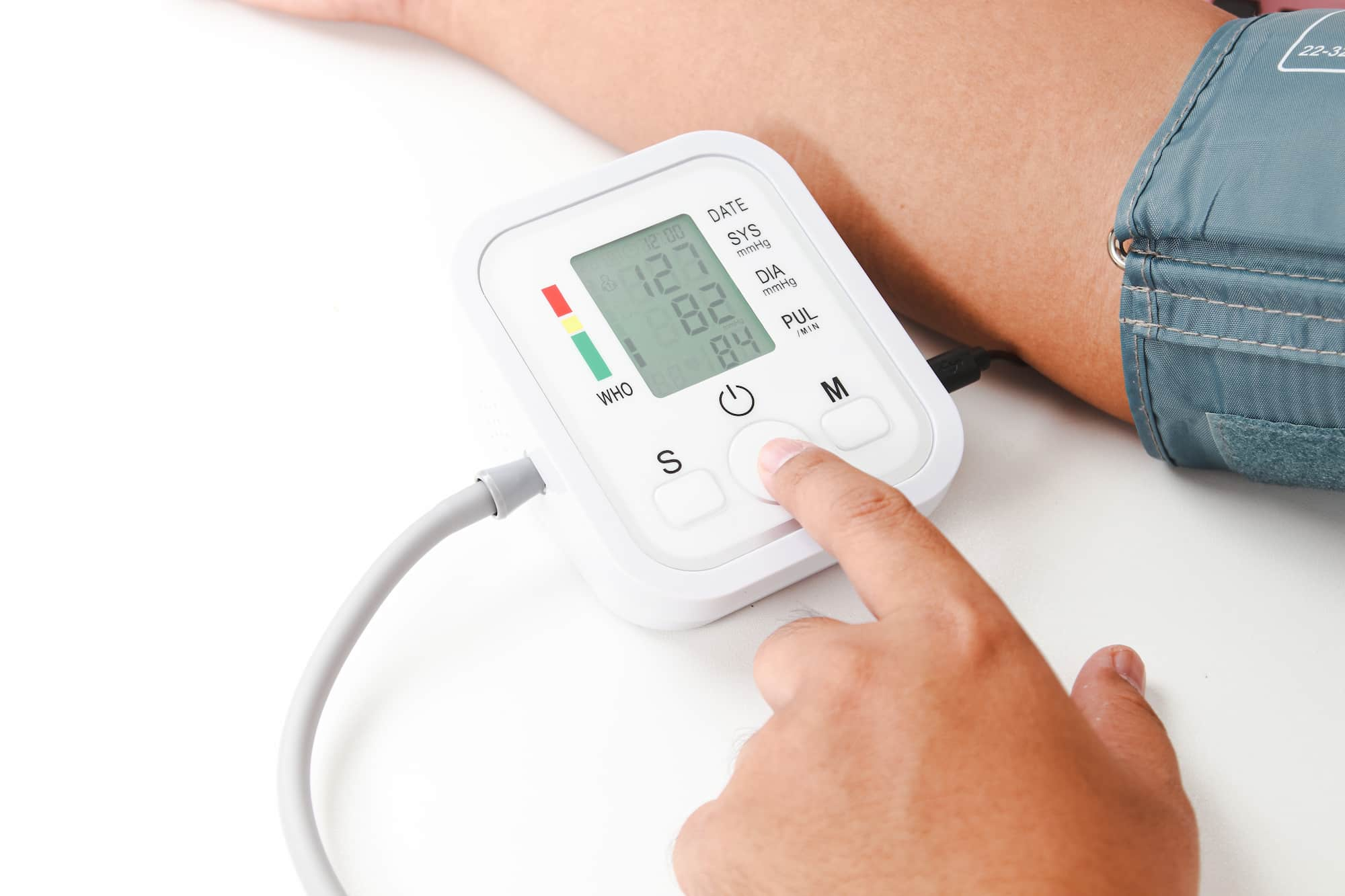Diabetes Risk Test in Turkey
Healthy Türkiye helps you find the best diabetes risk test in Turkey at affordable prices and adopts a 360-degree service approach in all areas of health through affiliated hospitals.
- Medical Treatment
- Medical Check-Ups in Turkey
- Colonoscopy in Turkey
- Vision Checkup in Turkey
- Electrocardiogram in Turkey
- General Check-Up in Turkey
- Hearing Screening Test in Turkey
- Allergy Skin Test in Turkey
- Gynecological Exam in Turkey
- Prostate Cancer Screening in Turkey
- Skin Cancer Screening in Turkey
- Stress Test in Turkey
- Bone Density Test in Turkey
- Diabetes Risk Test in Turkey
- Executive Check-Up in Turkey
- Gastroscopy in Turkey
- Sleep Lab in Turkey
- Homepage
- Medical Treatment
- Diabetes Risk Test in Turkey

About Diabetes Risk Test in Turkey
Diabetes risk test ise widely performed in Turkey. Diabetes is a chronic condition that affects millions of people worldwide. It is characterized by high levels of blood sugar, which can damage the body’s organs and lead to a range of serious health complications. One of the most important steps in managing diabetes is to regularly check your risk of developing the condition. This is typically done through a diabetes risk test, which is a simple and non-invasive way to determine your likelihood of developing the disease.
Diabetes risk tests generally focus on answering a series of questions about your personal and family medical history, as well as your lifestyle and other risk factors. These can include your age, weight, diet, physical activity levels, and whether you have any pre-existing health conditions.
Based on your answers, the test will calculate your risk of developing diabetes and provide recommendations for reducing that risk. This might include suggestions for improving your diet, increasing your physical activity, and maintaining a healthy weight.
It is important to note that a diabetes risk test is not a diagnostic tool. If you are concerned about your risk of developing the condition, you can speak with a specialist at Healthy Türkiye for a full evaluation. Additionally, it is important to remember that even if your risk of developing diabetes is low, it’s still important to maintain a healthy lifestyle and monitor your blood sugar levels regularly. This can help prevent the development of the condition and ensure that you remain healthy and active.

What Is a Diabetes Risk Test in Turkey?
A diabetes risk test is a simple and non-invasive tool used to determine a person’s likelihood of developing diabetes. Foreign visitors to Turkey can easily learn about their diabetes status by taking this test. This chronic condition is characterized by high levels of blood sugar, which can damage the body’s organs and lead to a range of serious health complications.
A diabetes risk test typically involves answering a series of questions about your personal and family medical history, as well as your lifestyle and other risk factors. These can include your age, weight, diet, physical activity levels, and whether you have any pre-existing health conditions. Based on your answers, the test will calculate your risk of developing diabetes, and specialists at Healthy Türkiye will provide recommendations for reducing that risk.

We Care About Your Health
Healthy Türkiye provides the best for your health and comfort. You will feel privileged with us.
7/24 Quality Personal Assistance Throughout Your Journey
Customizable for You All-Inclusive Packages
Get the Right Advice for your Health
How Is the Diabetes Risk Test Performed in Turkey?
A diabetes risk test in Turkey is typically performed by answering a series of questions about your personal and family medical history, as well as your lifestyle and other risk factors. To perform the test, you will be asked to provide information about your age, weight, diet, physical activity levels, and whether you have any pre-existing health conditions. This information will be used to calculate your risk of developing diabetes.
The test is normally performed by a specialist, such as a doctor or a nurse. Some diabetes risk tests can be completed online via a smartphone app on the internet, which Healthy Türkiye will offer you. Once the test is complete, you will receive a report with your calculated risk of developing diabetes and recommendations for reducing that risk. This report, prepared by experts, contains important recommendations for your health.
Risk Factors for Type 1 Diabetes
There are three main types of diabetes disease: type 1, type 2, and gestational diabetes. With all three, your body cannot make or use insulin. One in every four patients with diabetes does not know they have it. May you be one of them? Read on to see if your risk of having diabetes is high. Type 1 diabetes generally begins in childhood. Your pancreas stops producing insulin. This means you have type 1 diabetes for life. The basic things that lead to it are:
If you have relatives with diabetes, chances are higher that you will get it. Anyone who has a mother, father, sister, or brother with type 1 diabetes must get checked. An easy blood test can diagnose it. Disorders of the pancreas can slow its ability to produce insulin. Some infections and diseases, mostly rare ones, can damage your pancreas.
Risk Factors for Type 2 Diabetes
Your possibility of developing type 2 diabetes depends on a combination of risk factors. Although you cannot change risk factors related to family history, age, race, or ethnicity, you might be able to avoid some risk factors by maintaining a healthy weight and being physically active. Read about the risk factors for type 2 diabetes below, and see which ones apply to you. Acting on the factors you can change might help delay or prevent type 2 diabetes.
You might develop type 2 diabetes at any age, even during childhood. You are more possible to develop type 2 diabetes in the following cases;
If you’re overweight or obese
If you are age 35 or older. Children and teens might also develop type 2 diabetes, but the risk increases as a person get older.
If you have a family history of diabetes.
If you are not physically active due to physical limitations, a sedentary lifestyle, or a job that requires sitting for a long time.
If you have prediabetes.
If you have a history of gestational diabetes, a type of diabetes that develops during pregnancy or giving birth to a baby weighing 9 pounds or more.
Children and teenagers are at a higher risk of developing type 2 diabetes if they were born with a low birth weight or if their parents had gestational diabetes while pregnant with the child. You are encouraged to talk with a specialist at Healthy Türkiye about any of the health conditions listed above that might require medical treatment. Managing health problems might help decrease your chances of developing type 2 diabetes. Also, ask your specialist at Healthy Türkiye about any medications you or your child take that may increase your risk. You can also take the diabetes risk test to learn more about your risk for type 2 diabetes.
Assessment of Diabetes Risk Test in Turkey
If you have not been diagnosed with diabetes but have general concerns and want to find out if you have diabetes or your level of risk of developing diabetes, diabetes risk tests might be the right option for you. At this single appointment, you will meet one of our nursing team members at Healthy Türkiye, who will take some history, and check your height, weight, and blood pressure, as well as your HbA1c (blood sugar).
You will also have a 30-minute consultation (your total visit to the clinic is 1 hour) with one of the dietitians or diabetes specialist nurses at Healthy Türkiye, where your body composition will be measured. At the end of the appointment, you will be informed of either a diagnosis or your level of risk.
Diabetic Risk Assessment Report
Outcome-proven diabetic risk assessment analysis gives you and your patients an accurate, personalized assessment of their individual risk of developing type 2 diabetes mellitus, involving:
Individual risk beyond just fasting glucose
Longitudinal tracking of responses to your clinical interventions
Additional resources to further understand the biological processes that lead to type 2 diabetes
At Healthy Türkiye, our analysis will help you not only understand your patients’ initial risk but will also provide you with the tools for monitoring their ongoing response to your professional direction.

2026 Cost of Diabetes Risk Test in Turkey
All types of medical attention, like diabetes risk test, are very affordable in Turkey. Many factors are also included in determining the cost of diabetes risk test in Turkey. Your process with Healthy Türkiye will last from the time you decide to have diabetes risk test in Turkey until the time you are fully recovered, even if you are back home. The exact diabetes risk test procedure cost in Turkey depends on the type of operation involved.
The cost of diabetes risk test in Turkey does not demonstrate many variations in 2026. Compared to costs in developed countries like the United States or the UK, diabetes risk test costs in Turkey are relatively low. So, it’s no wonder patients from across the world visit Turkey for diabetes risk test procedures. However, the price is not the only factor affecting choices. We suggest looking for hospitals that are safe and have diabetes risk test reviews on Google. When people decide to seek medical help for diabetes risk test, they will not only have had low-cost procedures in Turkey, but also the safest and best treatment.
At clinics or hospitals contracted with Healthy Türkiye, patients will receive the best diabetes risk test from specialist doctors in Turkey at affordable rates. Healthy Türkiye teams provide medical attention, diabetes risk test procedures, and high-quality treatment to patients at a minimum cost. When you contact Healthy Türkiye assistants, you can get free information about the cost of diabetes risk test in Turkey and what this cost covers.

Why Choose Turkey for Diabetes Risk Test?
Turkey is a common choice among international patients seeking advanced diabetes risk tests. Turkey’s health procedures are safe and effective, with a high success rate, like the diabetes risk tests. The increasing demand for high-quality diabetes risk tests at affordable prices has made Turkey a popular medical travel destination. In Turkey, diabetes risk test is performed by highly experienced and trained doctors with the most advanced technology in the world. A diabetes risk test is done in Istanbul, Ankara, Antalya, and other major cities. The reasons for choosing a diabetes risk test in Turkey are as follows:
High-quality hospitals: Joint Commission International (JCI) accredited hospitals have dedicated diabetes risk test units that are specially designed for patients. International and national strict protocols provide effective and successful diabetes risk test for patients in Turkey.
Qualified experts: The expert teams include nurses and specialist doctors who work together to carry out diabetes risk tests according to the patient’s needs. All the included doctors are highly experienced in performing diabetes risk tests.
Affordable price: The cost of diabetes risk test in Turkey is affordable compared to Europe, the USA, the UK, Singapore, Australia, etc.
The high success rate: Highly experienced specialists, the best available technology, and stringently followed safety guidelines for post-operative care of the patient, resulting in a high success rate for diabetes risk testing in Turkey.
A recent study conducted by the specialists involved a comprehensive analysis of over 10,000 participants who underwent the Diabetes Risk Test. The study utilized a longitudinal approach, tracking participants over a five-year period to assess the accuracy and predictive capability of the test. The results demonstrated a significant correlation between the identified risk factors in the test and the actual development of diabetes, reinforcing the test’s reliability as a valuable tool for early detection and preventive interventions.
Is Diabetes Risk Test Safe in Turkey?
Did you know Turkey is one of the most visited destinations for diabetes risk tests in the world? It is ranked as one of the most visited tourist destinations for diabetes risk tests. Over the years, it has also come to be a very popular medical tourism destination, with many tourists coming in for diabetes risk tests. There are so many reasons why Turkey stands out as a leading destination for diabetes risk tests. Because Turkey is both safe and easy to travel to, with a regional airport hub and flight connections to pretty much everywhere, it is preferred for diabetes risk tests.
The best hospitals in Turkey have experienced medical staff and specialists who have performed thousands of medical services, such as diabetes risk tests. All procedures and coordination related to diabetes risk testing are controlled by the Ministry of Health in accordance with the law. Over many years, the greatest progress in medicine has been observed in the field of diabetes risk testing. Turkey is known among foreign patients for its great opportunities in the area of diabetes risk testing.
To emphasize, besides the price itself, the key factor in selecting a destination for a diabetes risk test is certainly the standard of medical services, the hospital staff’s high level of expertise, hospitality, and the safety of the country. You can reach out Healthy Türkiye for everything you need to know about diabetes risk test in Turkey.
The Best Hospitals in Turkey for Diabetes Risk Test
The best hospitals in Turkey for diabetes risk test are Healthy Türkiye, Memorial Hospital, Acıbadem International Hospital, and Medicalpark Hospital. These hospitals attract patients from all over the world seeking diabetes risk test due to their affordable prices and high success rates.
Best Doctors and Surgeons in Turkey for Diabetes Risk Test
The best doctors and surgeons in Turkey for diabetes risk test are highly skilled professionals who offer specialized care and advanced procedures. With their expertise and state-of-the-art techniques, these specialists ensure that patients receive high-quality diabetes risk test and achieve optimal health results.

Frequently Asked Questions
You will need to get your blood sugar tested to find out for sure if you have prediabetes, type 1, type 2, or gestational diabetes. Testing is easy, and results are generally available quickly.
Potential complications of diabetes and frequent comorbidities include heart and blood vessel disease. Diabetes is involved with an increased risk of heart disease, stroke, high blood pressure, and narrowing of blood vessels (atherosclerosis).
Stress alone does not cause diabetes. But there is some evidence that there might be a connection between stress and the risk of type 2 diabetes. Our researchers think that high levels of stress hormones may stop insulin-producing cells in the pancreas from working properly and reduce the amount of insulin they make.
Older adults are at high risk for the development of type 2 diabetes due to the combined effects of growing insulin resistance and impaired pancreatic islet function with aging.
